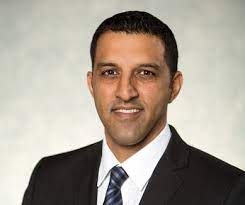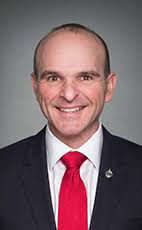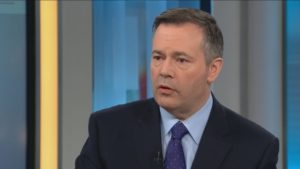| Party | National -Popular-Vote | National- Seats | Alberta- Popular Vote | Alberta- Seats (2019) |
|
Liberals |
32.4% | 159 | 15.3% | 2 (0) |
|
Conservatives |
33.8 % | 119 | 55.4% | 30 (33) |
| Bloc Quebecois | 7.8 % | 33 | Not registered | 0 |
| Green Party | 2.3% | 2 | 0.9% | 0 |
| People’s Party | 5.1% | 0 | 7.5 % | 0 |
| New Democrats | 17.7% | 25 | 19.0% | 2 (1) |
| Maverick Party |
0.2%
|
0 | 1.3% |
0 |
After 36 days of political blustering, Canadians learned “the morning after” there will be another minority government led by Justin Trudeau’s Liberals. At 12 noon on 26 September MT Elections Canada shows the Liberals leading in 159 seats, the Conservatives at 119, Bloc at 33 seats, NDP at 25 and the Green Party with two candidates leading/elected.
National Vote
In the popular vote, the Tories lead at 33.7 per cent followed by the Liberals at 32.6 per cent of the vote. A third of the vote went Liberal producing 47 per cent of the seats. The Tories collected 35.2 per cent of the seats with a very strong showing in the Prairies and some gains in the Atlantic region. The Tories however lost 2 seats compared with their showing in 2019 under Andrew Scheer.
Readers might remember this vote was supposed to be the second general election with a proportional representation scheme. Funny how the Liberals promised and reneged because they knew the “first-past-the-post” is their winning ticket to remain in power.
I can imagine how many Albertans would feel: they have been loyal Tories forever and ought to share in some of the spoils of national government, at least once in a while. Since Trudeau père won in 1968- 53 years ago- the Liberals have occupied 24 Sussex Drive for 37 years or approximately 70 per cent of the time. All the cushy judgeships lost to liberal jurists, jurists supposedly stifling Alberta’s resource-based economy! All the money flowing to Quebec! The unfairness of it all! So Drew Barnes is searching for signatories demanding an independence vote.
In third place were the NDP polling 17.7 per cent capturing 7.4 per cent of the seats; the Greens 2.3 per cent with 0.6 per cent of Commons’ seats. Regional concentration of the Bloc vote of 7.8 per cent nationally resulted in 10.1 per cent of the seats. More grief for Albertans as the BQ will keep the Liberals reined with goodies for Quebec voters. Meanwhile, the Peoples’ Party of Canada took about 5 per cent of the national vote but no PPC candidates were elected.
This was an election about incumbency where 84 per cent of the sitting members were re-elected, a remarkably high number.
|
Incumbents elected |
# Seats |
New MPs |
Per cent Incumbents |
Per cent New MPs |
|
|
Atlantic |
25 |
32 |
7 |
78% |
22% |
|
Quebec |
71 |
78 |
7 |
91% |
9% |
|
Ontario |
99 |
121 |
22 |
82% |
18% |
|
Manitoba |
14 |
14 |
0 |
100% |
0% |
|
Saskatchewan |
10 |
14 |
4 |
71% |
29% |
|
Alberta |
30 |
34 |
4 |
88% |
12% |
|
British Columbia |
35 |
42 |
7 |
83% |
17% |
|
Northern Canada |
1 |
3 |
2 |
33% |
67% |
|
Total Seats |
285 |
338 |
53 |
84% |
16% |
Source: The Globe and Mail. https://www.theglobeandmail.com/politics/federal-election/2021-results/
Saskatchewan and Atlantic Canada saw the greatest turnover while Manitoba and Quebec had the lowest turnover. Alberta’s vote count saw only 3 seats change hands.
Alberta votes
In Calgary Skyview, popular city Councilor George Chahal

won over CPC’s Jag Sahota with 42.7 per cent of the vote versus Sahota’s 35.6 per cent.
In Edmonton Griesbach, Kerry Diotte a former Sun columnist was upset by the NDP’s Blake Desjarlais

who received 40.5 per cent of the vote compared to Diotte’s 37.1 per cent.
In Edmonton Centre, Randy Boissonnault

regained his seat won in 2015. He narrowly defeated James Cumming with 33.7 per cent of the vote with Cummings at 32.5 per cent and the New Democrats’ Heather Mackenzie with 28.8 per cent of the vote.
Heather McPherson, the NDP incumbent in Edmonton Strathcona won handily with 60.7 per cent of the popular vote; the Conservative candidate received just 25.5 per cent of the popular vote.

Alberta Popular vote
Overall, the Conservatives party dominated again with 55.4 per cent of the popular vote; Liberals at 15.2 per cent; the NDP at 19 per cent (above their national level of 17.7 per cent); the PPC at 7.5 per cent; and the Maverick (western independence) Party at 1.3 per cent. The Conservative popular vote fell by 14 per cent from the 69 per cent the party received in 2019. More than half of that change is represented by the votes received by two right-wing parties.
The PPC factor was critical taking nearly one-half of the disgruntled Tory vote with 1.2 per cent going to the Maverick- (Western alienation/ independence) Party. This means progressives in Alberta remain outnumbered by a factor of two to one. Unfortunately, their 35 per cent of the vote received only 12 per cent of the seats. While the Liberals increased their share of the popular vote by 1.4 per cent, the NDP vote grew by 7.4 per cent or by 63 per cent. This significant gain is likely due to two main factors. First at the provincial level the NDP is ahead in voter intentions due to the widespread unpopularity of Premier Kenney. Secondly, the NDP, particularly in Edmonton, has strong provincial constituency associations which overlap with federal associations thereby helping mobilize volunteers for the federal party.
A downside of the first-past-in-post system means, as was the case under Chretien and Trudeau fils majority governments, is that Alberta was hopelessly underrepresented in cabinet because of the enormous conservative vote. Quebec interestingly enough features two party fights which result in more even-handed results. More Commons’ seats mean more seats around cabinet and influence in final cabinet decisions where regional blocks are important.
This means that Randy Boissonnault will sit in Cabinet. Having been parliamentary secretary to the Prime Minister and chair of a parliamentary committee managing the Wilson-Raybauld hearings, the PM clearly owes him. Whether Boissonnault will receive a senior cabinet post, perhaps Energy, we will find out in week or so.
The Kenney factor
Absent from the Alberta campaign trail was Jason Kenney who was facing a serious leadership crisis. Remaining invisible for nearly a month while COVID case loads, deaths and hospitalizations were climbing rapidly, Kenney did not get drawn into the federal election. While it is customary for provincial premiers to remain aloof from federal elections (Francois Legault an exception this time around), his mishandling of the COVID-19 crisis certainly led the more Wild Rose elements to abandon the federal Tories for the CPC and Maverick parties. His leadership failure also would explain why the NDP and Liberal vote rose as well in urban Alberta.
Opinion
This cynical, unnecessary election really changed little. All party leaders were sullied by their individual failures to articulate either 1) why the election? or 2) why should I vote for your party/candidate? This pointless election will again undermine the public’s trust in conventional, retail politicking. Polarization spurred on in large part by the resistance to safe, effective vaccinations dressed up in protecting freedoms, especially in Alberta and Québec, is unfortunate- a huge understatement.

Perhaps another minority under Trudeau fils will recharge Kenney’s anti-Ottawa battery and his play for keeping his leadership will be renewed attacks on Trudeau’s new cabinet. We can certainly expect strident opposition should Trudeau actually do something meaningful on the climate emergency front. However, let’s not forget the premier may face further embarrassment if the equalization referendum question during October’s municipal elections is rejected. Another classic case of a pointless ballot.

In the age of digitization, social media, and splintering of society into bubbles maybe the manner in which elections are conducted or how our 500-year old system of Westminster democracy works, should be reconsidered?

Time for proportional representation. Given that five of the last seven elections have resulted in minority governments, time to
abandon the notion that ‘ first past the post’ Westminister style elections provide more stability. Better to have a PR system that actually reflects public opinion.